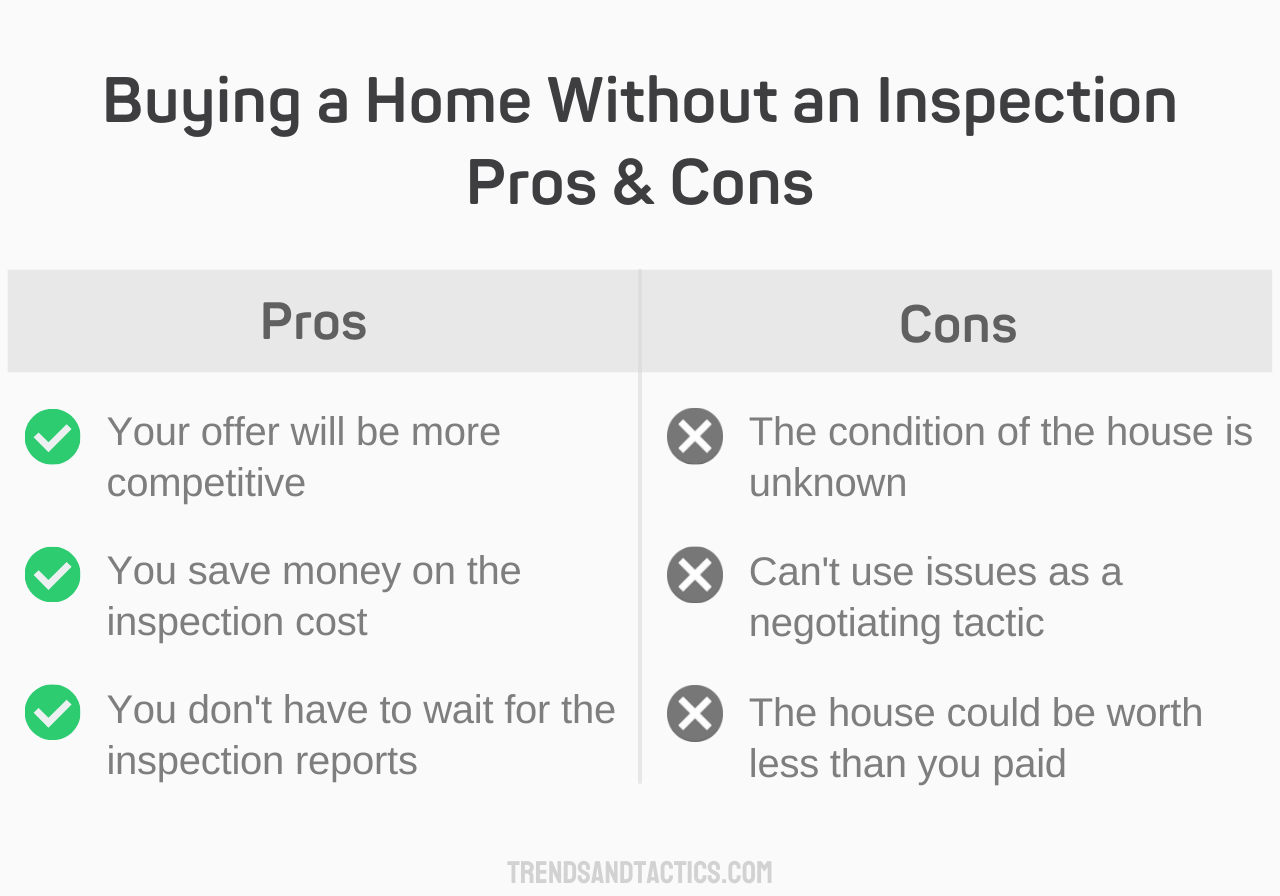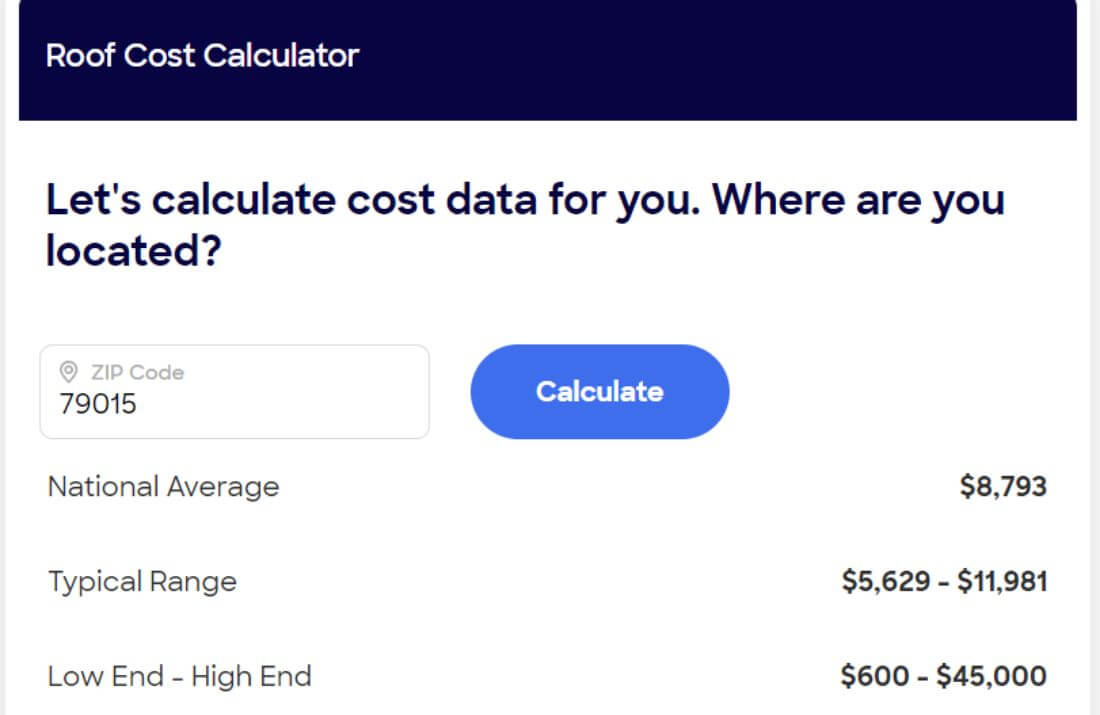For most, buying a home without an inspection is a huge gamble.
However, in today’s competitive housing market, some buyers are waiving this contingency in order to increase their chances of winning a bidding war. But is a home inspection worth it?
While waiving the home inspection contingency may help you win the bid, it’s generally not advisable to do so without fully understanding the risks involved.
What does it mean to waive home inspection contingency?

A home inspection contingency is a common clause in real estate purchase contracts that gives the buyer the right to cancel the contract or renegotiate the price based on the findings of a professional home inspector.
The home inspection contingency protects the buyer by giving them a way out of the contract if the inspector finds major problems with the property that the seller is unwilling to repair.
For most buyers, waiving the home inspection contingency is a big risk.
With a home inspection waiver, buyers are essentially saying that they are willing to purchase the property without knowing what condition it is in, which is different from a seller losing money selling a house as is.
This is generally not recommended, as it takes away one of the main protections that buyers have during the purchase process.
Trend on the Rise
Modify the language in your offer, specifically about inspections. Rather than skipping inspection entirely, you can offer to overlook any single repair that is valued at less than $500 or specify that you are only looking for major issues. This shows the seller that you are committed and willing to be flexible on minor repairs, still giving you an edge when buying a home in today’s market.
The Risks of Buying a Home Without a Home Inspection
When you’re buying a home, it’s important to have a clear understanding of what you’re getting into.
That’s why home inspections are so important. A good home inspection can reveal hidden problems that could end up costing you a lot of money down the road.
Without an inspection, you could be making a huge investment in a home that is not as sound as you thought it was.
One of the biggest risks of buying a home without an inspection is that you could end up with serious structural problems.
Tactic for Success
If waiving a home inspection, you should consider purchasing a home warranty. A home warranty is like an insurance policy for your home. It can protect you from unexpected repair bills in case something goes wrong with the home after you move in. So, if you’re waiving a home inspection, be sure to purchase a home warranty.
If the foundation is not sound, for example, it could cost you thousands of dollars to fix that you may not have if you’re buying and selling a home at the same time.
Other problems such as roof leaks, HVAC, and electrical and plumbing issues can also be expensive to repair.
In some cases, these kinds of problems can even make a home uninhabitable.
Another risk is that you could end up paying more for the home than it is actually worth. If there are hidden problems that lower the value of the home, you could end up overpaying
This is why it’s so important to have an inspector take a close look at the property before you buy it.
When Might It Be Ok to Waive a Home Inspection
There are a few situations where it may be okay to waive a home inspection.
For instance, if the seller has recently had a home inspection performed and is willing to share the findings with you, then you may feel confident enough to forego an inspection.
Or if you are an experienced home flipper and already have money set aside for major repairs, then you may decide that waiving the home inspection is in your best interests in order to beat out any competition.

Even brand new homes can have issues, but if the builder is giving a warranty that would cover any defects this could be enough reassurance to skip a home inspection.
Of course, if money is no object and you are simply in love with a particular property, then you may also feel comfortable waiving an inspection to get your offer accepted.
However, for most people, it is best to err on the side of caution, regardless of how aggressive the market is.
Trend on the Rise
Waive the contingency but not the inspection. This may help you win the bidding war, and you’d still be entitled to an inspection to gather information. If there is a serious defect it might give you cause to back out of the deal. For instance, the presence of toxic mold would give the buyer legal cause to cancel the contract.
What to Look for When Buying a Home Without an Inspection
If you’re considering skipping a home inspection when purchasing a property, there are certain things you’ll need to evaluate for yourself, regardless of if the seller is using a traditional or alternative method to sell the house.
For starters, you’ll need to take a close look at the home’s condition.
First, check for any obvious signs of damage such as water stains on the ceilings or walls, cracks in the foundation, or any other visible issues.
Next, take a close look at the home’s plumbing and electrical systems. Make sure there are no signs of leaks, exposed wires or other problems.
Also check the water pressure and make sure the drains are clear. Finally, take a close look at the home’s HVAC system.
Make sure there are no signs of leaks or other problems. By taking the time to evaluate the home yourself, you can help minimize the risk of buying a property with hidden problems.
Tactic for Success
Before you put in your offer, have an inspector do a walk-through of the property. This way, you’ll at least have some idea of what you’re getting into. The inspector will look for any obvious signs of damage and can give you an estimate of what repairs might cost. This won’t be as thorough but it’s better than nothing.
The major aspects of a home inspection
- Plumbing system – They’ll check for leaks or damage and make sure the water heater is in good working order. They’ll also check the temperature, making sure it doesn’t exceed 125 degrees Fahrenheit.
- Electrical system – The electrical systems will be examined during the inspection, which includes looking at the wiring, outlets, and the electrical panel. They’ll look for exposed wiring and anything that is out-of-code.
- The roof – The roof will be checked for any signs of leaks or damage including missing shingles.
- HVAC system – The heating and cooling systems will be inspected to make sure they’re in good working order.
- Structural elements – The inspector will check the foundation and framing of the house to make sure there are no cracks or other problems.
- The attic – The attic will be checked for any signs of leaks or mold. Additionally, they will check for proper ventilation, water penetration, and electrical issues.
- Pest infestation – The inspector will look for any signs of termites or other pests that could be damaging the property.
How to Avoid Buyer’s Remorse if You Do Choose to Waive the Inspection Contingency
If you do choose to waive the inspection contingency, there are a few things you can do to avoid buyer’s remorse.
First, be sure to thoroughly research the property beforehand. This means looking at public records, talking to neighbors, and doing your own due diligence.
Additionally, be sure to have a realistic idea of what repairs might cost. This will help you avoid any surprises down the road.

Finally, be sure to work with a reputable real estate agent who can help you navigate the process.
Alternative ways for home buyers to beat out the competition in a hot seller’s market
- Go through full underwriting before making an offer on a home – Sellers looking at multiple offers will often choose the offer that is most likely to close. By having your loan already underwritten, you will appear as a much stronger candidate.
- Increase your earnest money deposit – A larger earnest money deposit shows that you are serious about buying the home and can afford to do so.
- Shorten the contingency period – This way if something was to fall through the sellers are able to relist the property without losing too much time.
- Offer above asking price – In a bidding war, the offer with the highest price will more likely than not win.
- Add an escalation clause – An escalation clause states that you are willing to increase your offer by a certain dollar amount if another buyer outbids you.
- Be prepared to move fast – In a market where homes are receiving multiple offers, the buyers who can move the quickest will have a better chance of their offer being accepted.
- Doing all of the above – If you want to make sure that your offer is accepted then doing all of the above will give you the best chance.
Wrapping Up
In a hot seller’s market, it can be tough to beat out the competition and win the home you want.
Buying a home without an inspection comes with its risks but ultimately you will need to decide if it is worth it or not.
Tara is a licensed real estate agent in Southwest, FL. She helps buyers and investors find their dream home by educating them about real estate and how they can use it as an investment.






